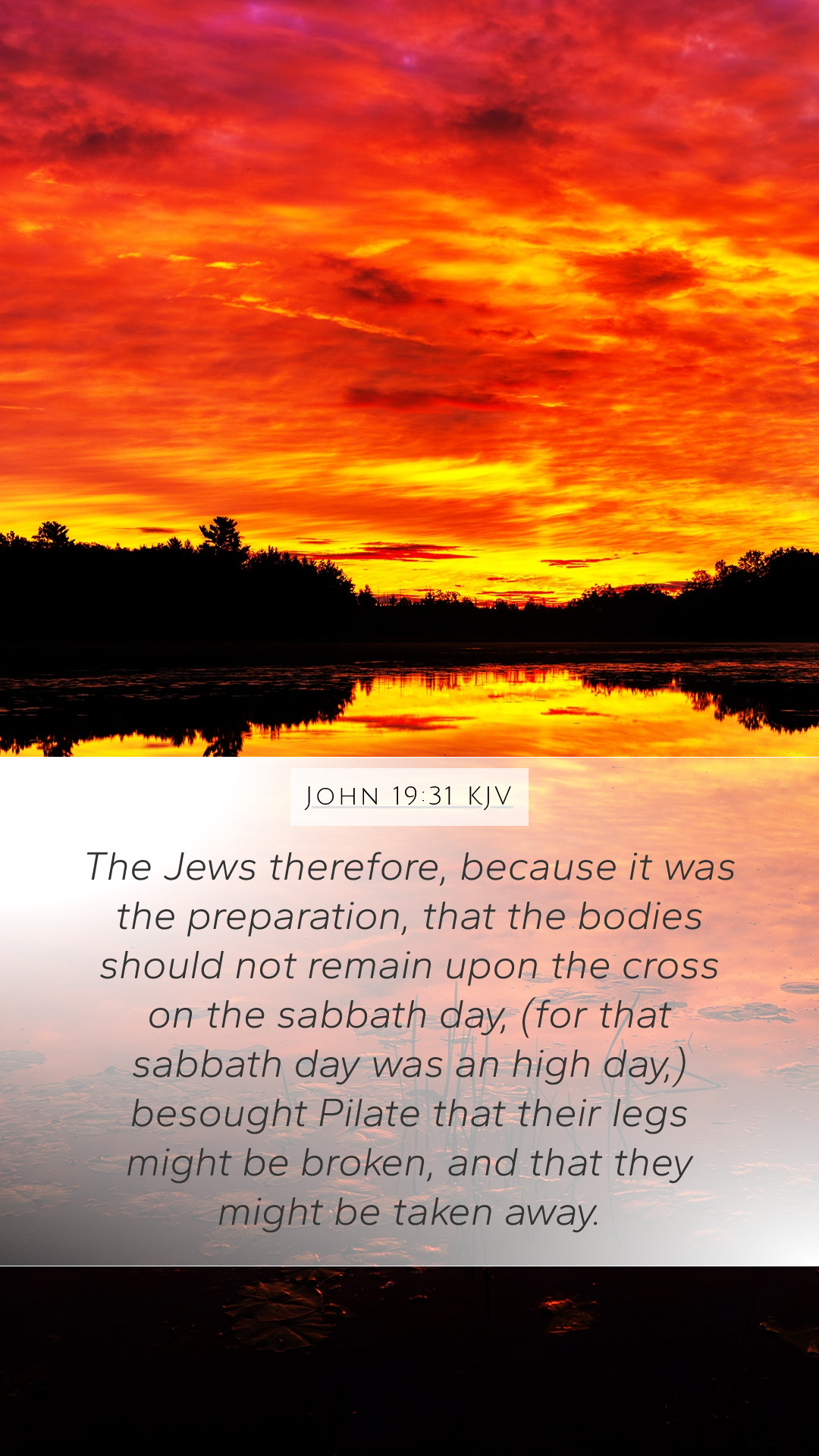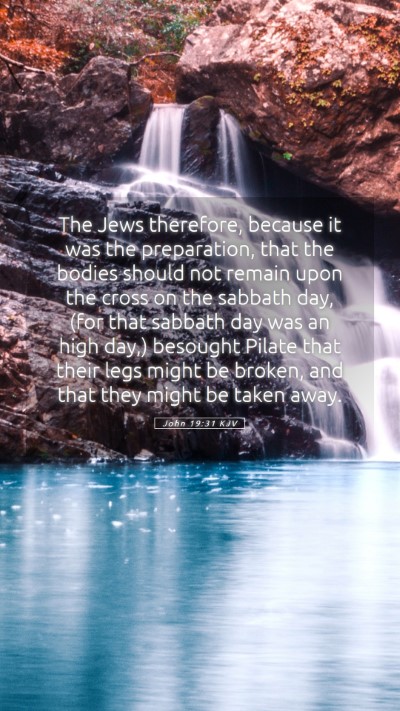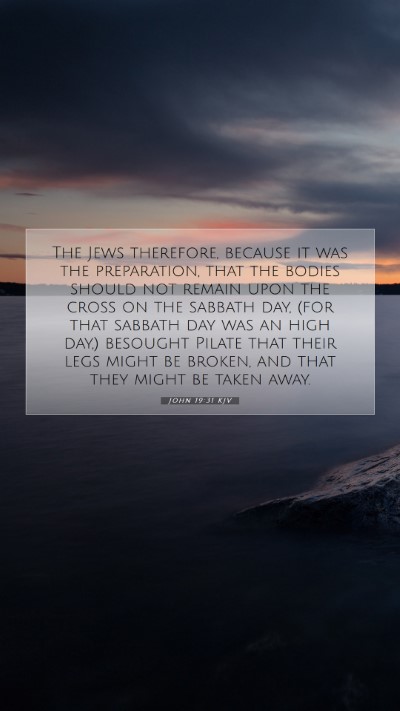Understanding John 19:31 - Bible Verse Explanation and Commentary
John 19:31 (KJV): "The Jews therefore, because it was the preparation, that the bodies should not remain upon the cross on the sabbath day, (for that sabbath day was an high day,) besought Pilate that their legs might be broken, and that they might be taken away."
Introduction to the Verse
This verse occurs in the context of the crucifixion of Jesus Christ. It reflects the customs and concerns of the Jewish leaders regarding the observance of the Sabbath, which begins at sundown on Friday and lasts until sundown on Saturday. This commentary aims to explore the deeper meanings, interpretations, and significance of John 19:31.
Historical Context
The setting of John 19:31 is crucial for understanding its meaning. The Jewish leaders sought to ensure that the bodies of those crucified would not remain on the crosses during the Sabbath, especially since it was not an ordinary sabbath but a "high day," typically associated with major Jewish festivals like Passover. This context highlights the tension between the practices of the Jewish law and the unfolding significance of Christ’s crucifixion.
Commentary Insights
-
Matthew Henry: He emphasizes the legalistic nature of the Jewish leaders who requested the removal of bodies to avoid defiling the Sabbath. This highlights their priority on external observance of the law rather than understanding the heart of the law, which is mercy and justice.
-
Albert Barnes: Barnes notes the irony in the request of the Jewish leaders. Here they are, plotting against the Son of God, yet they are concerned about ritual purity. This underscores a theme of hypocrisy, juxtaposing their actions against the moral implications of their demands.
-
Adam Clarke: Clarke explores the cultural customs regarding bodies left on crosses. The breaking of the legs was a method to hasten death, thereby facilitating the removal before the Sabbath, showing both cruelty and adherence to the law.
Theological Significance
The request made by the Jewish leaders to Pilate serves a dual purpose in the narrative. First, it reflects their concern for the Sabbath law, while simultaneously demonstrating their inability to recognize the importance of what was happening through Jesus’ crucifixion. Jesus, the true Passover Lamb, was offered up for the sins of humanity during the time of Passover, highlighting God's providential timing.
Symbolism and Typology
The verse carries a rich typological significance, drawing parallels between Jesus as the ultimate sacrifice and the Passover lamb. Just as the Passover lamb had to be without blemish and offered on the eve of Passover, Jesus meets these criteria, marking a new covenant.
Application of the Verse
For those engaging with this scripture, it offers profound lessons on the nature of human understanding and the dangers of legalism. It challenges believers to look beyond mere ritual observance and to see the heart of God’s law, which is love and redemption.
Related Bible Cross References
- Exodus 12:46 - The Passover lamb's bones were not to be broken.
- Psalm 34:20 - Prophetic reference about bones not being broken.
- Matthew 27:62-66 - The request to secure the tomb of Jesus reflecting the fear of the Jewish leaders.
Conclusion
John 19:31 invites believers into a deeper exploration of Jesus' death and its implications for both the Jewish faith and Christian theology. It serves as a reminder that while traditions hold significance, the spirit behind them—love, grace, and sacrifice—is what truly fulfills God’s commandments.
Further Study Resources
For those interested in deeper study, consider exploring:
- Bible study groups for communal insights.
- Online Bible study platforms to access varied interpretations.
- Bible study guides that offer structured lessons on scripture.
Encouragement for Further Exploration
Engaging with scripture requires both heart and mind. As you study John 19:31, reflect on its implications in your own life and community. Consider how understanding this passage could enhance your Bible study methods, personal reflections, and shared teachings in Bible study groups.


